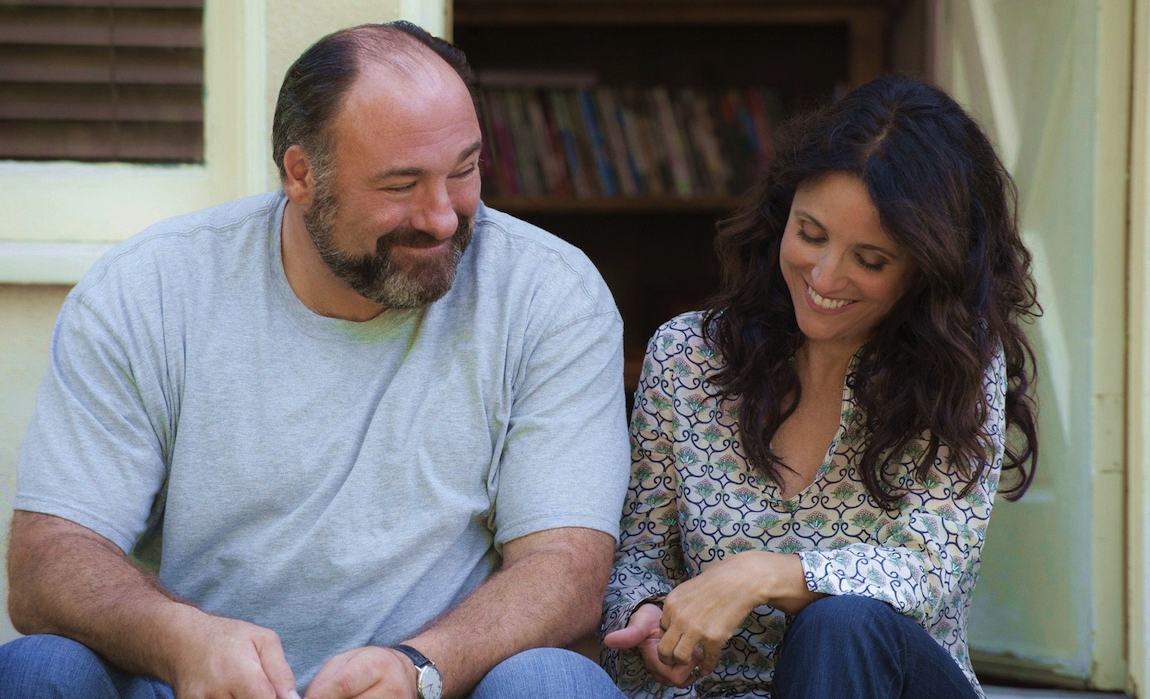Enough Said
A rom-com that's actually, miraculously both romantic and comedic.
Overview
To call Enough Said a romantic comedy seems wrongly restrictive. Essentially, it's just that, but really, it's much more. A quirky divorcee starts falling for a slobby, overweight but very loveable dude, then realises it's her friend's despised ex-husband. Antics ensue.
The title and the poster are something of an undersell — 'Enough Said' sounds like any other moronically make-believe candyfloss crap in which an unlikely yet star-crossed couple with Hollywood cheekbones and poreless skin battle for 90 minutes and get together — forever, of course — in the final scene. The title is oddly generic; try slipping 'About Time', 'Here's the Thing' or 'Wouldn't You Know?' in its place.
Here's the difference: Nicole Holofcener is one of the smartest, wryest female American directors around. Friends with Money established her as a someone who makes real films with real characters for real grown-ups. She then joined the television glory days, directing episodes of HBO's Enlightened — two short seasons of confronting and hilarious viewing. Laura Dern and Mike White's amazing creation, the deluded yet totally empathisable Amy Jellicoe, could make you question if your own deepest-held longings are just impossible and impossibly vivid self-deceptions.
With Enough Said, Holofcener makes a pitch for the mainstream, moving in on the edge of the territory staked out by James L. Brooks: rom-coms that are actually, miraculously both romantic and comedic. I can't help but wonder if it's because her last film, Please Give, was a well-intentioned but dour project that somehow missed its mark, as well as the wide audience that this super cluey director deserves.
In Enough Said, she's cast Julia Louis-Dreyfus in the usual Catherine Keener role. Where on earth has Louis-Dreyfus been for the last decade and a half? She is a flat-out great leading actress. Here, she perfects what she revealed on Seinfeld in the 1990s: a character's failed attempts at carefree casualness. With wide-eyed, sideways glances and upturned intonation, she relays cluelessness and hopefulness, her yearning earnestness betraying her surface breeziness. (A side note: Claudia Karvan does this best in Australia.)
The whole cast is spot-on, and James Gandolfini is especially endearing in his last, quite slight role — though I couldn't help wonder what complexity Louis CK could have brought to the character.
There's something extraordinary about seeing quite ordinary women on film. In Gravity, Sandra Bullock's astronaut-taut face barely moved from the effects of what one hoped was zero gravity but was more likely astronomical proportions of filler and muscle relaxant. By contrast, Keener and Louis-Dreyfus aren't great beauties, but they are uncommonly lovely and a delight to watch — animated, bright, baffled and trying and trying and trying their fallible human best to succeed in love.
Despite the unambitious nature of this easy Friday night film, Holofcener is a freakishly perceptive observer of our time's obsessions and longings. There aren't nearly enough films about the relationship between your different relationships and love after love. I laughed at the film's sticky, recognisable truths for the whole hour and a half. She's succeeded in making something for the masses without resorting to lowest-common-denominator bullshit. And that's really something.
https://youtube.com/watch?v=nEEJaIjF_Lo





